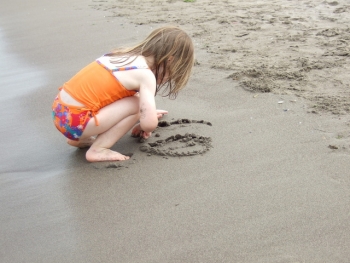This week I watched a movie, Collateral Beauty. Will Smith plays a successful advertising executive who is sidelined by grief when his six-year-old daughter dies. He is rendered almost silent by sadness, speaking to few people, separated from his wife, and letting his business go. He begins writing letters to "time," "death" and "love." His colleagues find a creative way for him to receive responses from each of these concepts, and he begins to find his way back from the anger and helplessness. At one point he is challenged to consider the theory of "collateral beauty." In other words, pondering the idea that there could be a possibility of finding beauty in something as ugly as the death of a six-year-old.
Is it possible?
Also this week, a dear friend asked me to pray for him. His task was to minister to parents whose son had committed suicide. My friend texted me that as he went to speak to the couple, his legs were trembling. What would he say? What would I pray? I went to my room and lifted my hands in prayer, bringing my own powerlessness before God. I couldn't imagine the pain of the parents, as well as my friend's own pain as he had known their son. And so I called out for God's love and strength and glory to be felt in the crevices of heartache and confusion and fatigue and stress and unanswered questions. I prayed that His comfort would course through their minds and hearts like a rushing river. I prayed that Jesus' supernatural peace would come like a gentle wind, His presence encircling them, His love a shelter for them to hide in--a place to rest and catch their breaths, a refuge to feel his faithful embrace.
My friend texted back that the time together was filled with tears and God's presence. I texted back, "His love inside the pain." My friend wrote back, "This is hard to hear, but I know it is true."
Years ago, before my husband and I were married and still bridging our relationship between the ocean, we walked along the beach. He was due to go back to Italy the next day. I felt vulnerable, not knowing if I could take one more separation. We walked hand in hand, the rushing waves the only sound between us. Abruptly, Giovanni stopped walking, bent down and picked up a stick and began writing in the sand. I looked down and saw that he'd written in gigantic letters, "I love you." While those words would not keep him physically near me, I could enfold mysef in that truth even an ocean apart.
Perhaps the assurance of God's love for us is a kind of collateral beauty. When nothing makes sense, when horrible things happen, we can fall back on the truth that no thing separates us from His love, that we can conceal ourselves in the folds of His garments, His warm hand on our heads assuring us that we are the beloved, that His love transcends the fragmentation of our lives.

